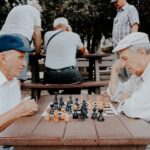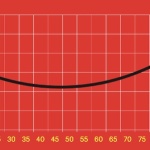Cognitive stimulation comes in a variety of types: intellectual/mental, physical, or social. Older adults are encouraged to find leisure activities they enjoy doing, and to continue pursuing them for the purpose of joyful meaning-making, and enhancing subjective well being. But... View Article
Tag Archive: aging
More and more people are using their phones for a multitude of tasks such as making online and in-person purchases, creating events, scheduling reminders, tracking tasks, and virtual meetings. All these functions are in addition to those for which people... View Article
We are living in an era where biomedical research has advanced exponentially – to the extent of being able to roll out and distribute a vaccine to millions within just months of the declaration of a pandemic. As scientists gather... View Article
A research study authored by psychology professor Ellen Bialystok and colleagues from York University sought to determine whether language learning was effective at boosting cognitive health among older adults. Participants between 65-75 years old, all of whom were monolingual English... View Article
This article provides some tips on how to keep the brain active throughout life. Since the brain is arguably the most important organ, one is advised to partake in physical activity and to stay fit and in shape, even as... View Article
In a recent McGovern Institute study described in an article by Anne Trafton, researchers have identified the brain circuit that is responsible for maintaining the motivation to learn new things or engage in daily activities. The circuit was specifically involved... View Article
A large focus of Alzheimer’s disease (AD) research is identifying early intervention strategies to decrease the risk and early onset of the disease. To test these strategies, the populations involved must benefit from the research. Many variables that are linked... View Article
Neuroscientist Nathan Michaels makes the analogy that brains are like machines. In this article, he states that all machines are made of a combination of structural elements that work together to produce a specific function. Machines also require inputs in... View Article
Chang et al. (2014 Curr Biol) compare visual perceptual learning in young (19-30 year old) and older (65-79 year old) adults. The task (reporting two digits that were flashed in the center of a screen within a sequence of letters)... View Article
An article by Jonathan Rauch in The Atlantic touches on the neuroscience of wisdom. He cites work by UCSD clinical psychologist Lisa Eyler and psychiatrist and Dilip V. Jeste (e.g. Meeks & Heste, 2009 Arch Gen Psychiatry, and Bangen et al., 2013 Am J... View Article
Finn et al. (2014 PLoS One) find evidence that the more “effortful” language learning of adults vs. children interferes with their learning of an artificial language (consisting of two-syllable, three-category nonsense words). In particular, adult learners under given instructions to... View Article
According to Bauer and Larkina (2014 Memory), children do retain their earliest memories through age 7, at which point “childhood amnesia” (i.e. the forgetting of memories beyond the normal rate) sets in. In fact, this phenomenon was evident long before... View Article










